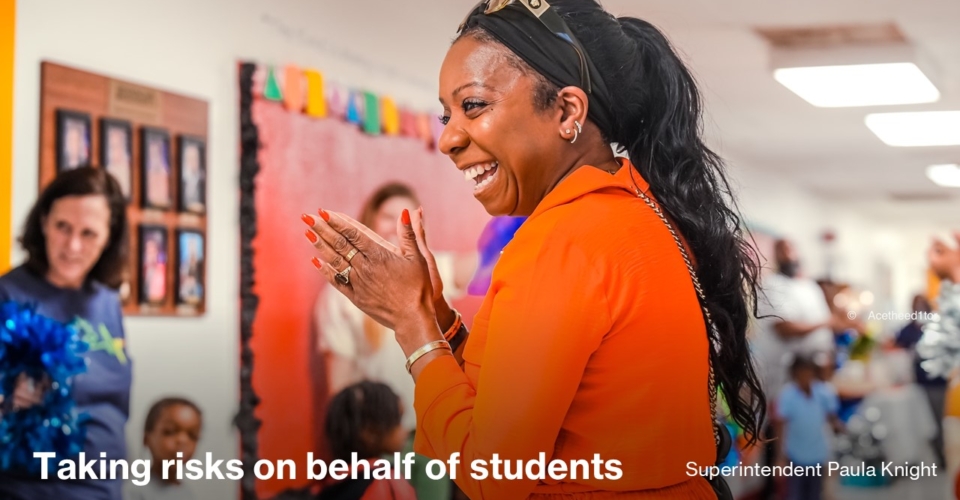South Carolina is 33rd in the nation when it comes to starting teacher salaries. This superintendent took it upon himself to ensure his educators knew their value by bringing his district from 53rd to first in the state for new teacher pay. Here’s how.
Superintendent Frank Rodriguez of the Beaufort County School District was recently named the South Carolina 2025 Superintendent of the Year. He has a history as a leader of going the extra mile to prioritize the needs of his community and his staff.
In 2019, he earned the trust to pass a $344 million bond referendum, the first in 11 years, and another in 2023, the largest in the district’s history at $439 million. The latter was approved by 72% of the district’s voters.
District Administration recently had the chance to sit down with Rodriguez to learn more about his leadership philosophy and where his priorities lie for 2024-25.
*Note, the following transcript has been edited for clarity and brevity.
Let’s reflect on this past school year. What were some of your highlights? What goals did you accomplish as a district?
“One of the things we’ve been able to do over the past couple of years was continue to raise compensation for our educators. About two years ago, we were at around $37,500 for starting teacher salaries, which put us at 53rd in South Carolina. We focused on that and we moved our starting salary to No. 1 in the state. Today, we sit at about $52,566 for starting compensation.
Another thing we did was provide child care for our teachers who have school-aged children. Teacher quality is essential. It’s another way teachers benefit here in Beaufort County. As a result, we’ve moved our ELA scores to the best the district’s seen in this current state assessment.”
Can you guide me through the steps you took to reach that No. 1 spot for starting teacher pay?
“The first thing was coming to the realization that it’s a problem. We’re all competing for the same talent. I was also thinking about my salary when I first started teaching in 1993—which was $30,000. When I look at that, the difference now is only $7,500. We’ve got to do something.
We looked at the return on investment on various things, and if it wasn’t meeting the ROI we were looking for, we shifted dollars internally to make that happen. We found about half of the money that way. And then communicating with our community. We got a unanimous vote to do this from our county council, which funded the other half.”
Tell me about your community engagement programs. How do you approach pandemic-related learning loss?
“That was a really big deal for us. Most of our ESSER dollars went directly towards accelerating learning for students. In northern Beaufort County, about 80% of the families chose virtual learning and 20% face-to-face. In southern Beaufort County, it was the opposite. We could see some of the impacts that experience was having during the pandemic.
We shifted gears and brought students back in for five-day-a-week, face-to-face instruction rather quickly. Knowing the impact that existed, we established community learning sites with some of our partners. We communicated with our ecumenical partners to bring students from school to these extended learning sites. We hired retired educators to continue this extended learning closer to home for students.
More from DA: 9 ways to promote STEM to your female students
We were able to share specific weaknesses for students on the standards, and then our retired educators who are familiar with standards were able to address those during the extended learning windows. We had a few school sites that had double-digit gains in reading and math as a result.
It’s one of those unique opportunities where through the organization Chiefs for Change, I was able to go to Capitol Hill to share about the use of our ESSER dollars for this initiative.”
What are your priorities for this upcoming school year?
“We continue to increase and expand our community engagement efforts. We work with different areas of our community that have expertise in career and technical education from their own experience and use them as a resource in our schools.
We’re also working to increase student outcomes, particularly in math. That’s the area that suffered the most during the pandemic. While we’ve shown growth, we’re still trying to accelerate their learning.
Another critical component is executing well on the referendum. We’re also always working on our recruitment and retention efforts. It’s so critical when you’re constantly seeking talent. We know that’s a challenge in school districts in terms of the number of vacancies that people have to deal with.”



